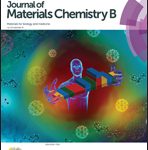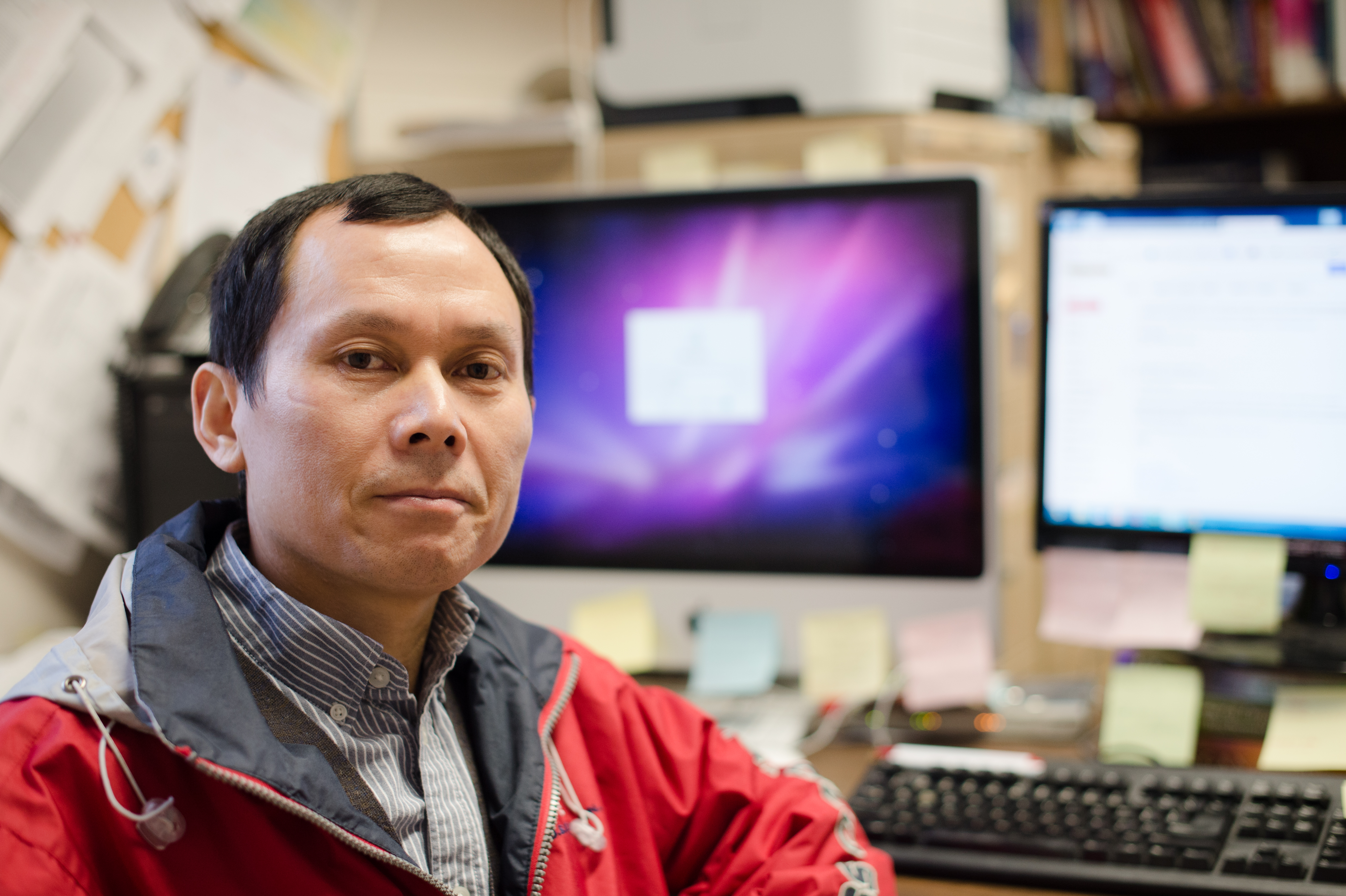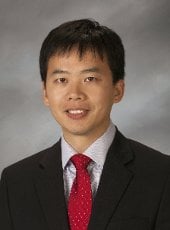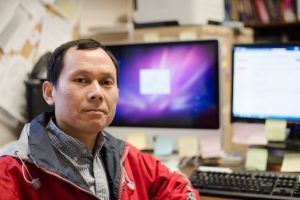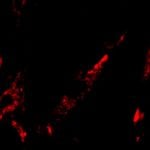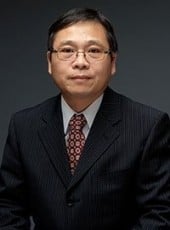 Haiying Liu (Chem), visiting scholars Jianbo Wang and Yibin Zhang and graduate students Shuai Xia, Jianheng Bi, Mingxi Fang and Wafa Mazi and others published a paper entitled “Ratiometric Near-infrared Fluorescent Probes Based on TBET and π-Conjugation Modulation between Tetraphenylethene and Hemicyanine Moieties for Sensitive Detection of pH Changes in Live Cells” in Bioconjugated Chemistry. The research is supported by NIH.
Haiying Liu (Chem), visiting scholars Jianbo Wang and Yibin Zhang and graduate students Shuai Xia, Jianheng Bi, Mingxi Fang and Wafa Mazi and others published a paper entitled “Ratiometric Near-infrared Fluorescent Probes Based on TBET and π-Conjugation Modulation between Tetraphenylethene and Hemicyanine Moieties for Sensitive Detection of pH Changes in Live Cells” in Bioconjugated Chemistry. The research is supported by NIH.
It is a privilege and honor to announce Sarah Green (Chem/GLRC) was selected from nominees across campus as the Spring 2018 Distinguished Lecturer.
Green was nominated by Mike Abbott, director of the Great Lakes Research Center Operations, and was selected from a highly competitive pool of candidates from all colleges and schools on campus.
Her lecture, “Expanding Spheres: Atoms to Earth, Local to Global, Science to Society,” will be presented at 4 p.m. Feb. 15, in MUB Ballroom A, in a format encouraging networking and discussions.
“Sarah has been part of several major climate-related/environmental monitoring efforts over the last 15 years, beginning with KITES, the very successful 2002 NSF-funded project that spawned nearly every other subsequent environmental monitoring effort in the upper great lakes. This work continues today with the Army Corps of Engineers, the Alliance for Coastal Technologies and NOAA/GLOS. Long a favorite lecturer on campus, Sarah Green, a 2013-2014 Jefferson Science Fellow with the U.S. State Department, relates to her audience in a concise and engaging manner.”
—Mike Abbott, director of the Great Lakes Research Center Operations
The Distinguished Lecture Series began in Fall 2016 to honor faculty for their research impact both in the peer-reviewed scientific realm, but also having a direct connection to society. Department chairs, center/institute directors, deans and Research Advisory Council members nominate highly engaging presenters with broad topic appeal.
Distinguished Lecturers are selected for their ability to increase the knowledge breadth of our community by connecting their research with societal and community concerns. Topics are broad intentionally, spanning all colleges and schools at Michigan Tech.
Nominees are reviewed by a committee and announced at the beginning of fall and spring semesters. Past Distinguished Lecturers include Richelle Winkler (SS) in Fall 2016, Simon Carn (GMES) in Spring 2017, and John Vucetich (SFRES) in Fall 2017.
For more information and to nominate yourself or others, visit the Michigan Tech Research Forum.
by Adrienne Minerick, Assistant to the Provost for Faculty Development




